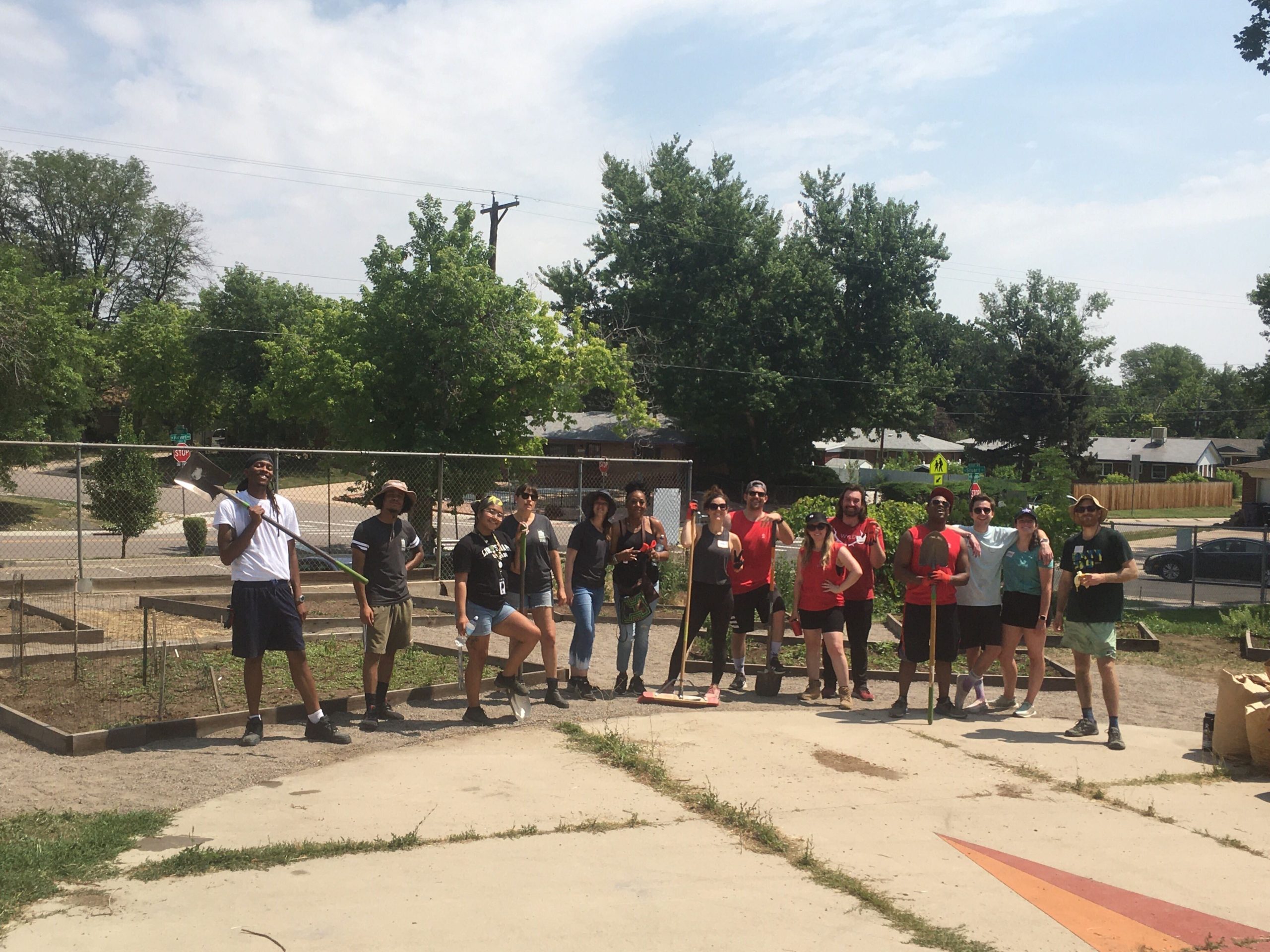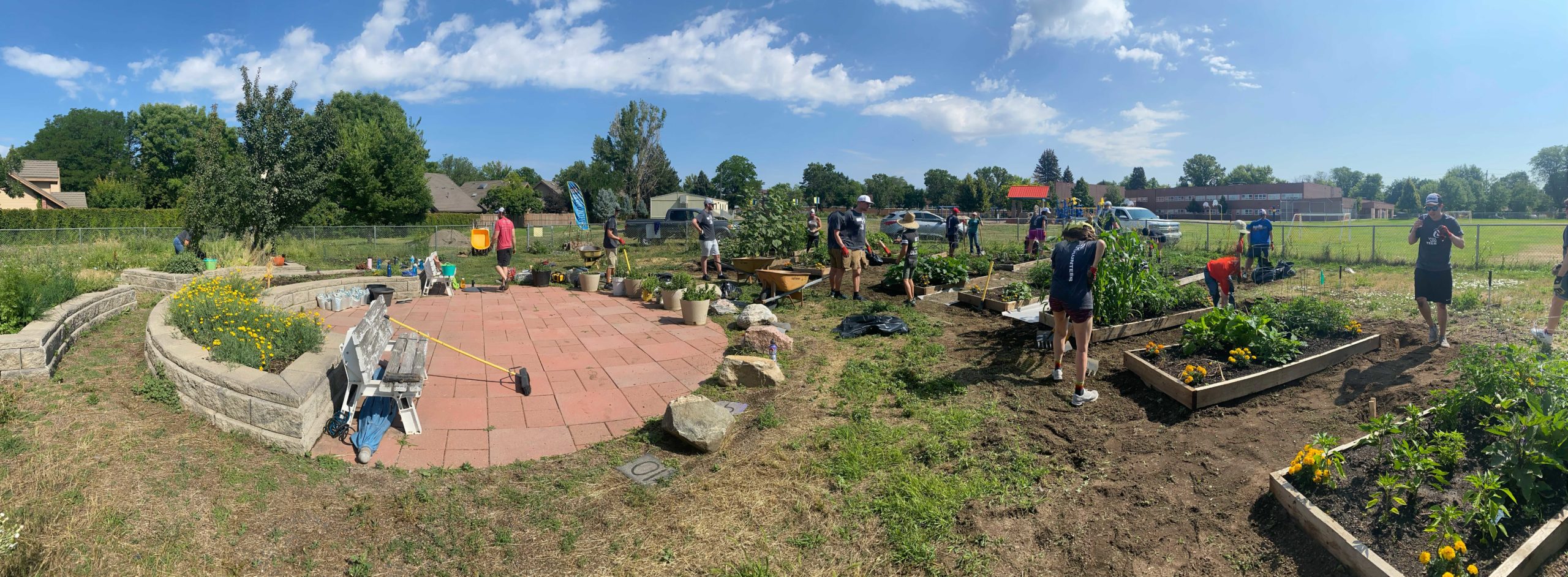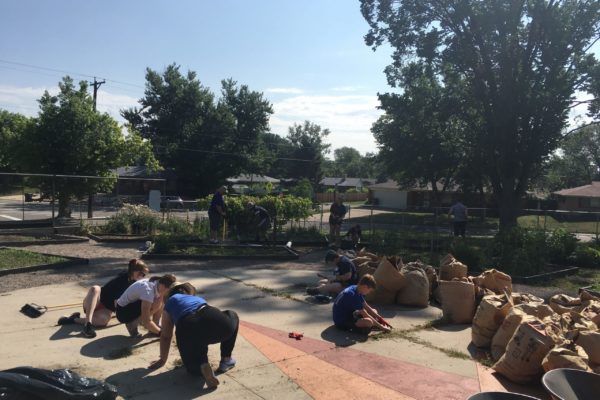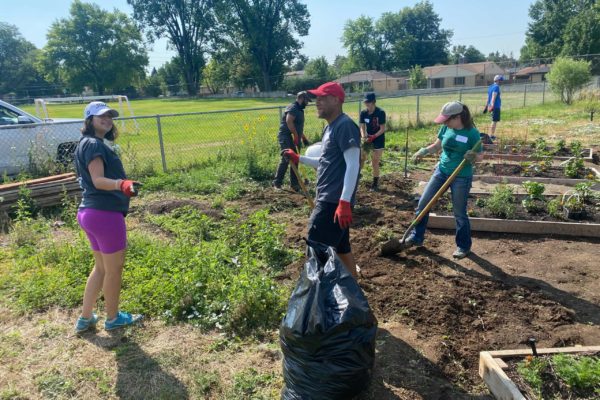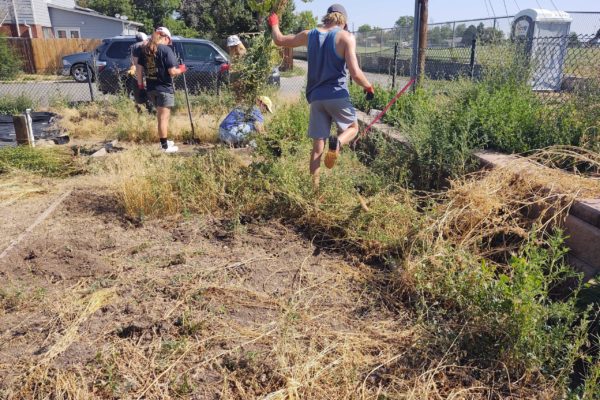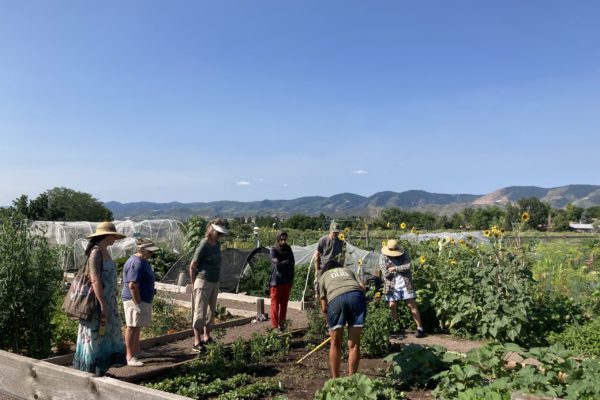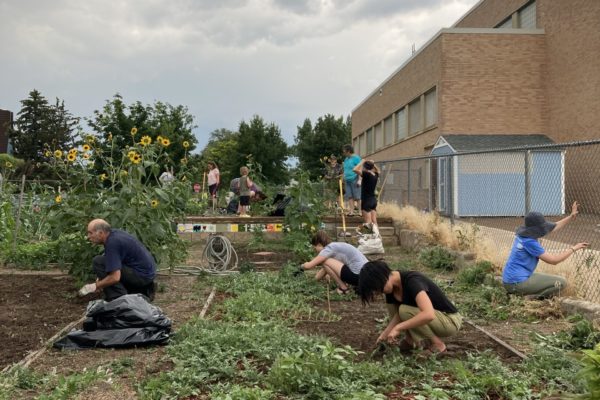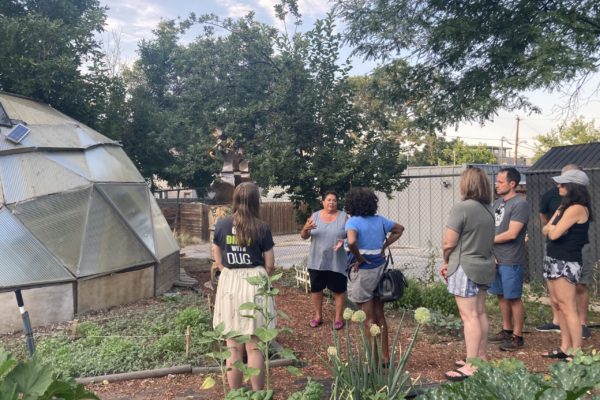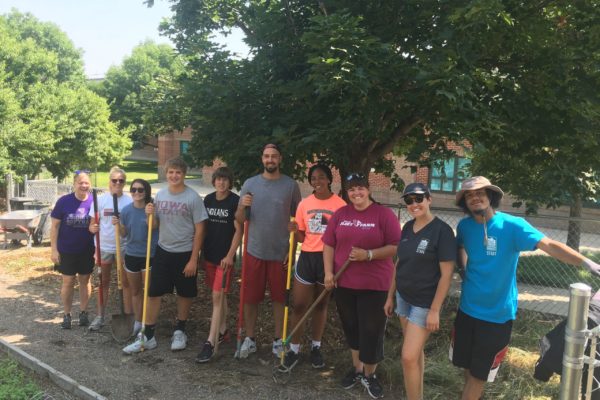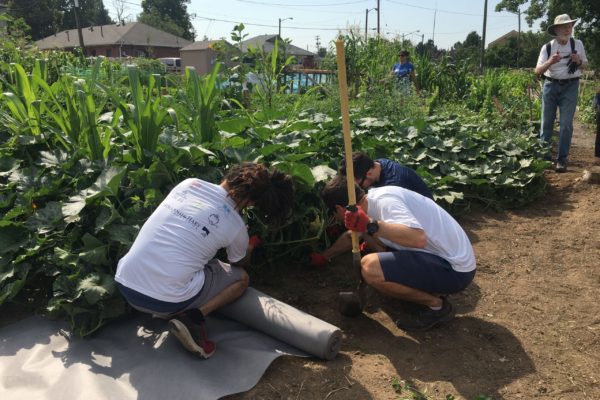With 188 gardens and around 17,500 gardeners, our DUG network has grown quickly over the last 10 years. After soliciting feedback from the community during our 2020 Listening Tour, we recognized that we could more efficiently organize our network to better connect with our gardeners to ensure all gardens had the resources they needed. From our brainstorming, two ideas emerged:
- to create a ‘corps’ that could be ‘hands in the soil’ for DUG to ensure our gardens were resourced equitably and address any deficiencies
- to develop ‘micro networks’ within the DUG garden network so that neighboring gardens could connect and build relationships to organize collaborative workdays, learn from one another, and be a support when problems arose
After several months of diligent work, we are thrilled to share we now have seven micro networks within the DUG community garden system:
- Green- SouthWest Sugar Snap Peas
- Maroon- Northside Nasturtiums
- Orange- Midtown Mung Beans
- Purple- Central Cucumbers
- Coral- Southern Spicy Peppers
- Yellow- East Central Endive
- Blue- Eastern Eggplants
In June, we also launched our inaugural cohort of the DUG Corps, who have been busy activating these micro-networks through garden workdays and community gatherings.
Their efforts began with a massive public awareness campaign to community gardeners, sending information about the networks as well as invitations to upcoming micro-network events. Then they got to work in the gardens themselves!
In the last two months, our DUG Corps have visited about 50 out of our 137 public community gardens to check in on the gardens and assess whether they were meeting the requirements of our Baseline Infrastructure Initiative. They have also planned and organized outreach for 15 micro network events, along with attending more than 10 workdays or community events that the gardens themselves organized in order to lend a hand and support their work.
In addition to their community organization work, they have additionally supported or led around 17 corporate or volunteer workdays at under-resourced gardens. Perhaps most excitingly, they have also helped activate three gardens that were in a state of neglect by organizing massive plot cleanups and engaging neighbors to become gardeners!
We are so thrilled with all of the work the DUG Corps has put in so far this season, and can’t wait to see how our micro networks continue to strengthen in the coming years.
If you’d like to request the DUG Corps visit your garden to support a workday or a community engagement event, please contact dugcorps@dug.org.
